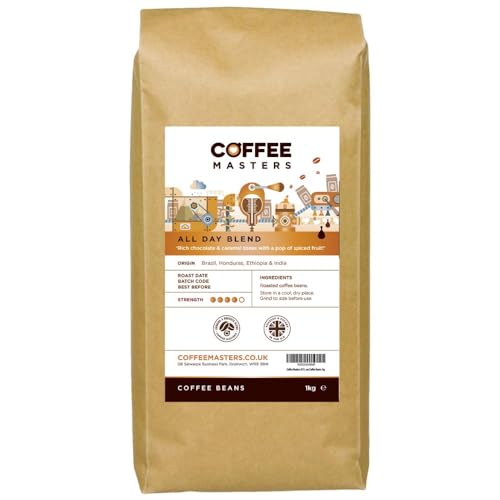A An Overview Of Coffee Bean From Beginning To End
페이지 정보
작성자 Phoebe 작성일24-11-13 15:55 조회13회 댓글0건관련링크
본문
 What Are Coffee Beans?
What Are Coffee Beans? The coffee beans you drink are actually the seeds of the coffee cherry. The coffee plant is perennial, which means that it will grow each year.
The coffee beans you drink are actually the seeds of the coffee cherry. The coffee plant is perennial, which means that it will grow each year.Coffee beans are high in concentrations of certain compounds - such as caffeine, and should be consumed in moderation. Learn more about this popular seed!
Origin
Coffee is a brewed beverage made from the roasted seeds (beans) of the coffee bean suppliers Near me, childers-jonassen.blogbright.net, plant. Beans are a well-known and profitable international commodity. The coffee plants are evergreen, woody plants that thrive in tropical climates. The Bean Belt includes the areas that surround the Tropic of Cancer, and the Tropic of Capricorn.
The most popular legend of coffee's history begins with a goat herder named Kaldi in Ethiopia. He observed that the bright red berries produced by certain coffee plants helped his goats become more energetic. Kaldi shared this discovery with an abbot of a nearby monastery, who made drinks using the berries. The berries' energizing effects took off from there.
Presently coffee beans are made by two main varieties of Coffea plants: Arabica and Robusta. Robusta is mostly in Africa and Indonesia and is typically cheaper than arabica. In addition to the main varieties, there are a variety of smaller specialty beans that are a mixture of robusta and arabica. They are known as Peaberries and have a scrumptier taste than standard beans.
In the process of roasting, beans lose their moisture, which can lead to them becoming stale and bitter. To avoid this, it is essential to select only fresh, high quality beans for your coffee.
Flavor
The four components of flavor -- acidity, bitterness, saltiness, sweetness and acidity- are influenced by the beans' type, climate, and the method of processing. The level of these elements can create a wide range of flavor profiles ranging from sweet and fruity to nutty or even smoky.
When coffee beans are heated, they react with amino acids present in the seed, forming hundreds of aromatic compounds that alter the flavor profile of coffee beans uk beans. This reaction is known as the Maillard Reaction, and it occurs in virtually all cooking. The result is that the scent of roasted coffee reflects those compounds.
While the Maillard Reaction affects the overall flavor of roasts, nonvolatile and volatile compounds also influence a coffee's taste. The flavor of a unroasted or green bean to cup coffee beans may be earthy, floral, fruity, or even chocolaty. Bitterness can be a result of roasts with a full body that contain more caffeine. However, it could also be caused by poor brewing or storage.
Flavored coffee beans have flavor oils that preserve the beans and give them a distinct scent and taste. The flavored oils are a combination of natural and chemical flavors that can include everything from cinnamon to vanilla to chocolate. The flavors bond to beans through an extremely chemical compound known as polyphenol.
Health Benefits
Coffee beans are an excellent source of potassium, magnesium and B vitamins. They're also a good source of antioxidants, which help to prevent the oxidative stress (which causes chronic diseases like atherosclerosis and cancer). The antioxidants chlorogenic acids in coffee beans are especially effective against obesity-related ailments, such as diabetes or high cholesterol levels.
Coffee is also an energy-boosting drink that is natural and helps people feel more alert and energetic. Its caffeine stimulates neurochemicals in the brain, which improve mental vigilance and memory, increases cognitive function and helps to regulate blood sugar levels within the body. Drinking moderate amounts of coffee has been proven to decrease the risk of Parkinson’s disease and dementia. It can also improve mood, satisfaction energy, concentration, and satisfaction.
Anti-ageing: The antioxidants present in coffee (including caffeine and chlorogenic acids) serve as a natural skin moisturizer increasing cell turnover and reducing the appearance of wrinkles and fine lines. They also have UV-protection properties, filtering light and preventing sun damage to skin.
Anti-depressant: Coffee beans can be used as an anti-depressant by increasing serotonin and dopamine in the brain to boost the level of happy hormones. It can also relieve inflammation and pain and pain, acting as a natural painkiller, and improving the effectiveness of prescription painkillers. Cafestol and Kahweol are diterpene-based compounds that have lipolytic properties. They aid in reducing cellulite.
Caffeine
Coffee is among the most sought-after drinks around the world and is now a part of numerous morning routines. Coffee coffeee beans are the seeds of the coffee plant, or the coffee cherry. They are rich in caffeine, a natural stimulant. The amount of caffeine in coffee varies based on how it is roasted and prepared. It can also be brewed. However, there are some fundamental rules regarding the amount of caffeine contained in each coffee bean to aid you in making smart decisions when choosing your joe.
The average coffee bean shop bean has around 2 milligrams caffeine per cup, however the exact amount can vary according to the bean's size and the amount of roasting it has. There is a popular belief that dark roasts have more caffeine in them than lighter roasted ones, but this is not the situation. Dark roast coffee beans will contain less caffeine than light roasts because of their smaller density. However, the amount of caffeine is the same.
The daily limit recommended for caffeine is 400 milligrams. A typical cup of coffee is 95 milligrams. If you're not sensitive to caffeine, staying within this range will not cause any adverse consequences. Those who are not sensitive to caffeine can enjoy their coffee, however it is important to be aware of how much caffeine you're inhaling and avoid excessive consumption.
댓글목록
등록된 댓글이 없습니다.
